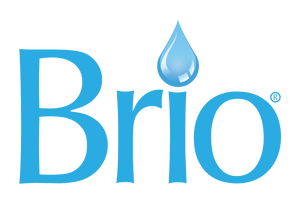Do you own a reusable water bottle? If so, you might be surprised to learn that you’re more than likely not cleaning it often enough. Leaving water in it overnight, refilling without rinsing, and sharing your water bottle can all increase the risk that harmful microorganisms grow in there.
Let’s take a look at why reusable water bottles are so necessary and how to look after them for improved health and well-being.
The Single-Use Water Bottle Waste Problem

At least 90% of Americans get their home’s drinking water from regulated, public water supplies. Despite this, the use of disposable plastic water bottles is increasing every year, possibly due to water regulations not guaranteeing contaminant-free water. Relying on single-use plastics is problematic for a number of reasons:
• Unrecycled plastic may end up in already overflowing landfills, contributing to multiple types of pollution, including water contamination.
• Other plastics are incinerated, creating toxic air pollution.
• Plastic pollution in the oceans is dangerous to wildlife and entire ecosystems.
• As plastic breaks down, it produces harmful microplastics that build up in the environment.
Recent reports show that many more plastics could be recycled across North America. But the best option of all is to ensure you have access to safe, clean water and a reusable water bottle.
Benefits and Types of Reusable Water Bottles

Investing in a reusable water bottle does more than help protect the environment. You’ll save money because you only have to buy your reusable water bottle once — as long as you look after it properly. You also have instant access to water you can take anywhere, especially when you also have an effective water filtration system in your home.
Reusable water bottles may be made of:
• Plastic
• Metal
• Bamboo
• Glass
Plastic is lightweight and durable, but only if you invest in the right type. You want to look for BPA-free plastic water bottles because BPA-free products are considered food-safe.
Metal water bottles are also durable but susceptible to tarnishing, which can spoil the taste of your water and even introduce contaminants. Glass is safe and non-reactive, but can break. Sustainable materials like bamboo can be very expensive and aren’t always very durable.
Why You Should Clean Your Bottle Regularly

Once you’ve purchased a high-quality, durable water bottle, you need to keep it clean. Why? Because if you don’t, you introduce bacteria to your water, which makes it unsafe. As bacteria multiply, they can cause sickness, diarrhea, and malaise.
Think about it: if you drink a glass of water in your home, you clean that glass after. You also dry it and put it in the cupboard. Failing to treat your water bottle in the same way can lead to the development of:
• Mold
• Mildew
• Bacteria
• Fungus
• Unpleasant odors and flavors
If your water bottle is opaque, you might not even realize that there’s a problem until it starts to smell bad. At that point, you’ve probably been ingesting potentially toxic bacteria for several days.
Rinse your bottle daily and leave it to air dry. Moist environments are a haven for bacteria and other microorganisms. At least once a week, give the bottle a thorough cleaning with mild detergent and a bottle brush. Always rinse the bottle well to avoid a lingering taste of detergent.
Tips for Simple Water Bottle Care and Maintenance

As well as keeping your bottle clean, you can prolong its life and usefulness with the following tips:
• Invest in water filtration solutions that remove harmful chemicals — the Brio Moderna 730 Series 4-Stage Reverse Osmosis Bottleless Water Cooler, for example, offers advanced filtration plus an extended dispenser height to fill your reusable water bottles more easily.
• Keep your water bottle dry and sealed when not in use.
• Make it part of your routine to fill your water bottle before you leave the house.
• Avoid knocks and drops that can cause cracks and other deformations.
• Replace your water bottle if the lid or any seal around the lid becomes cracked or degraded.
• Avoid storing your water bottle in warm environments between deep cleans, as this can encourage the growth of bacteria.
• If you notice dark or slimy residue on your water bottle, clean it immediately and thoroughly.
• Never reuse single-use plastic water bottles, as these degrade quickly and can be unsafe after several uses.
Brio Water offers so many ways you can reduce single-use plastic waste, from countertop water coolers to whole house filtration systems. Our BPA-free reusable water bottles allow you to refill and take your clean, safe water on the go: to work, when traveling, or when doing daily errands. Find out more about water safety by contacting Brio Water or browsing our collection of water bottles online.




